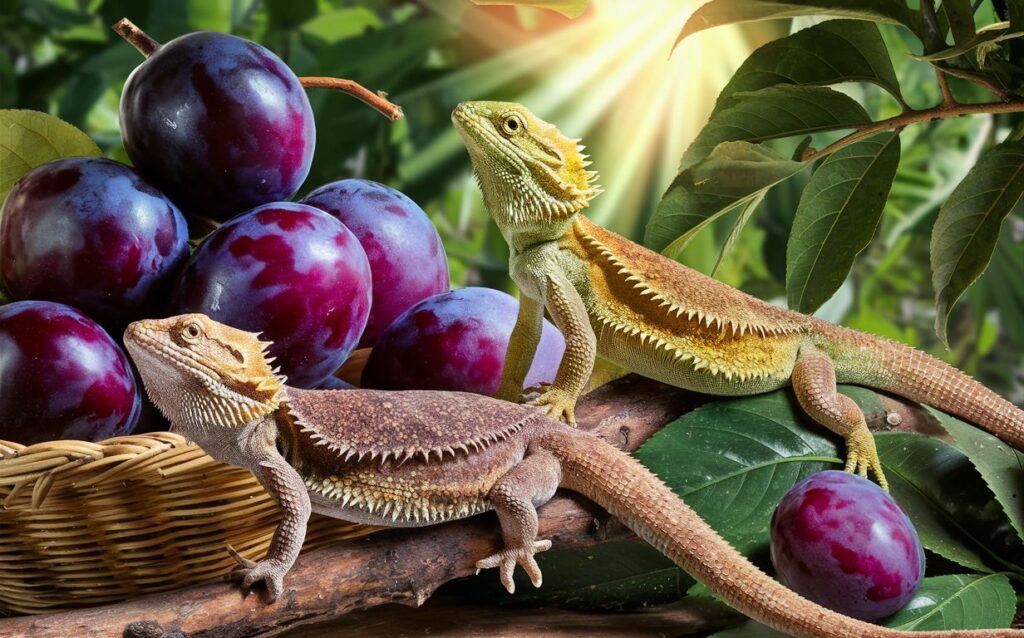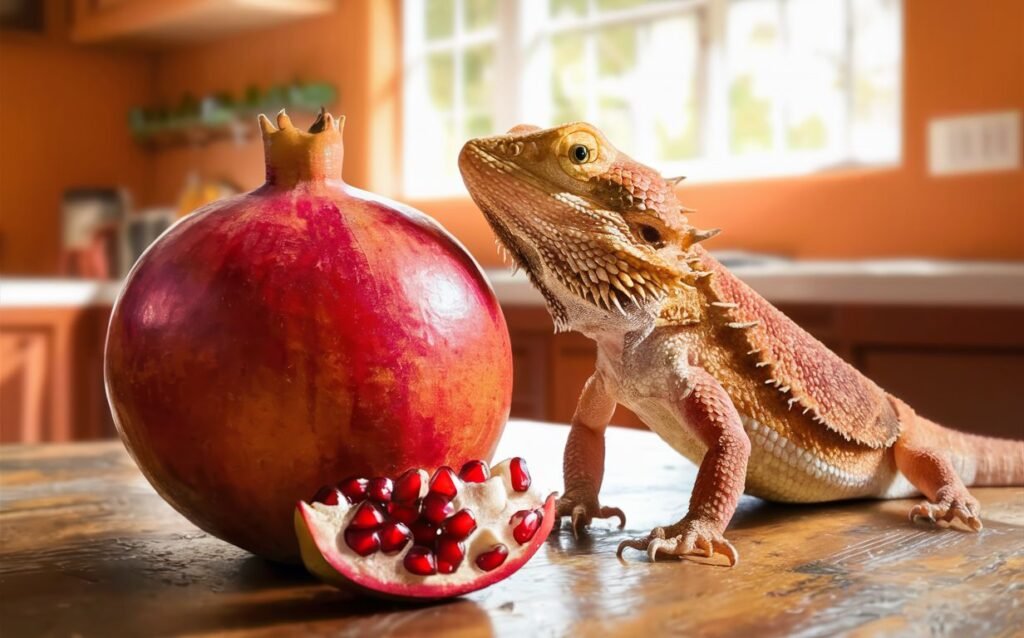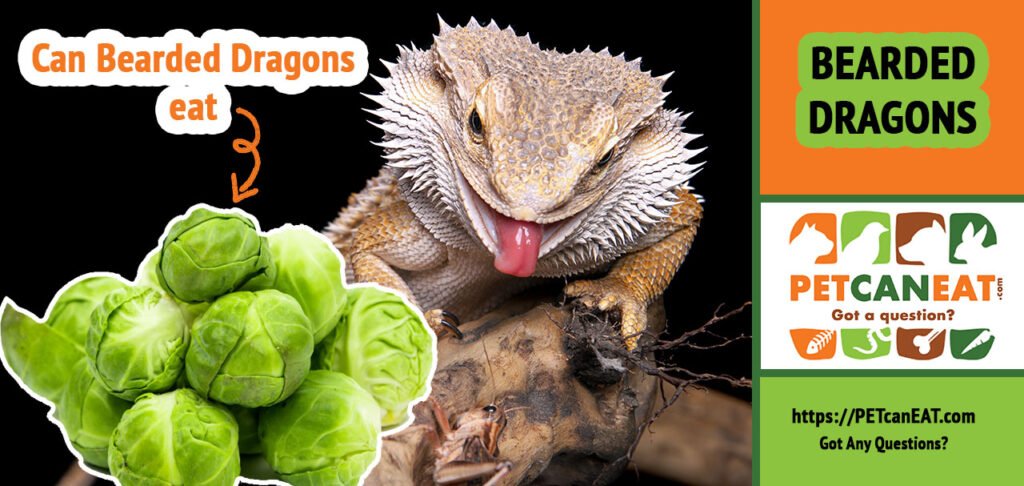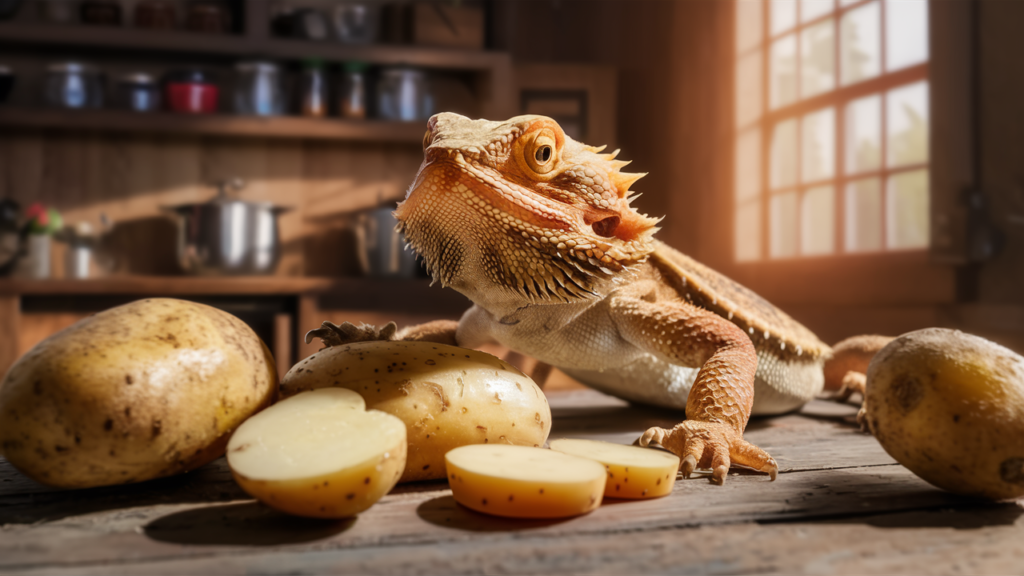In the diverse world of pet care, especially when it comes to the diet of bearded dragons, owners are constantly seeking safe and nutritious options to enrich their beloved pets’ diets. With their juicy sweetness and nutritional benefits, being tempted to offer plums to your beardie comes as no surprise, but the question is, can bearded dragons eat plums? or is this fruit a potential treat and cause for concern? This guide explores plums’ suitability as a part of a bearded dragon’s diet, considering their nutritional profile and the unique dietary needs of these reptiles.
Nutritional Overview
Plums are a powerhouse of vitamins and minerals essential for good health. They are notably rich in Vitamin C, known for its antioxidant properties, and Vitamin A, which are crucial for maintaining healthy vision, skin, and immune function. Additionally, plums offer dietary fiber, which aids digestion, and potassium, which supports heart health and muscle function. Their natural sugars provide a quick energy source, making them a tasty treat for many.
Here’s a table summarizing their nutritional benefits based on a serving size of 100 grams:
| Nutrient | Amount | % Daily Value* |
|---|---|---|
| Calories | 46 | 2% |
| Water | 87 g | – |
| Protein | 0.7 g | 1% |
| Carbohydrates | 11.4 g | 4% |
| Sugar | 9.92 g | – |
| Fiber | 1.4 g | 5% |
| Fat | 0.28 g | <1% |
| Vitamins and Minerals: | ||
| Vitamin A | 345 IU | 7% |
| Vitamin C | 9.5 mg | 16% |
| Vitamin K | 6.4 µg | 8% |
| Vitamin E | 0.26 mg | 1% |
| Potassium | 157 mg | 4% |
| Magnesium | 7 mg | 2% |
| Phosphorus | 16 mg | 2% |
| Calcium | 6 mg | 1% |
| Iron | 0.17 mg | 1% |
*Percent Daily Values are based on a 2,000-calorie diet. Your daily values may be higher or lower depending on your calorie needs.
Can Bearded Dragons Eat Plums?
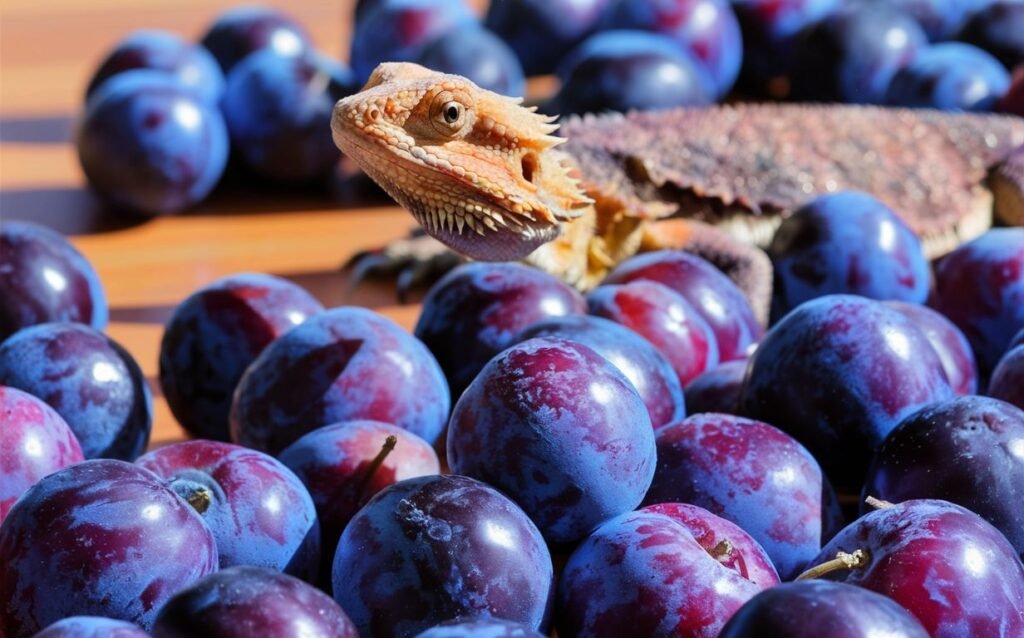
The short answer is yes, but with important caveats. Bearded dragons can enjoy plums in moderation as a part of a balanced diet. Fruits, including plums, should be considered treats rather than staples of their diet due to their natural sugar content. Overconsumption of sugary foods can also lead to health issues for bearded dragons, including obesity and dental problems. Therefore, plums should be given sparingly, making sure they complement a diet primarily composed of leafy greens and appropriate vegetables.
Benefits of Plums for Bearded Dragons
While plums should only make up a small portion of a bearded dragon’s diet, they can offer some health benefits when fed appropriately:
- Vitamin A contributes to the maintenance of good vision, skin health, and immune function.
- Vitamin C supports the immune system and can help in repairing tissues.
- Dietary Fiber aids in the digestive process, ensuring that your bearded dragon maintains regular bowel movements.
- Potassium plays a role in nerve function and muscle health.
These benefits underscore the potential of plums as a nutritious treat, albeit one that should be offered in moderation.
Risks and Considerations
When incorporating plums into your bearded dragon’s diet, it’s important to be mindful of the risks and considerations to ensure their well-being:
- Sugar Content: The high sugar content in plums can lead to obesity and dental issues in bearded dragons if consumed in large quantities.
- Pesticides: Opt for organic plums whenever possible to reduce the risk of pesticide exposure. If organic options aren’t available, thoroughly washing the plum under running water can help remove surface pesticides.
- Portion Size and Frequency: Plums should be cut into small, manageable pieces and offered as a treat no more than once a week to prevent any adverse effects.
How to Safely Prepare Plums for Your Bearded Dragon
To safely introduce plums into your bearded dragon’s diet, follow these preparation steps:
- Select a ripe, organic plum to minimize potential pesticide exposure.
- Thoroughly wash the plum under running water to remove any dirt or residues.
- Carefully remove the pit, as it can pose a choking hazard and contains compounds that can be toxic to bearded dragons.
- Cut the plum into small, bite-sized pieces appropriate for the size of your bearded dragon to ensure easy digestion.
- Offer a couple of pieces of plum as an occasional treat, being mindful of the overall balance of your pet’s diet.
Alternatives to Plums
To provide your bearded dragon with a varied and nutritionally balanced diet, consider these alternatives that are lower in sugar and rich in beneficial nutrients:
- Blueberries: These berries are a great low-sugar option, high in antioxidants and vitamins that can support your bearded dragon’s health.
- Dandelion Greens: Dandelion greens are an excellent source of calcium and vitamins and can be a staple in your bearded dragon’s diet.
- Butternut Squash: This vegetable is a nutritious, low-sugar option that can be easily digested by bearded dragons, providing them with essential vitamins and minerals.
Incorporating a variety of these alternatives ensures that your bearded dragon receives a balanced diet while minimizing the risks associated with high sugar intake.
FAQs
Q: How often can I feed my bearded dragon plums?
A: Plums should be offered sparingly, at least once a week, due to their high sugar content.
Q: Do I need to remove the skin of the plum?
A: No, the skin of the plum can be left on as it contains additional nutrients and fiber. Just ensure it is thoroughly

